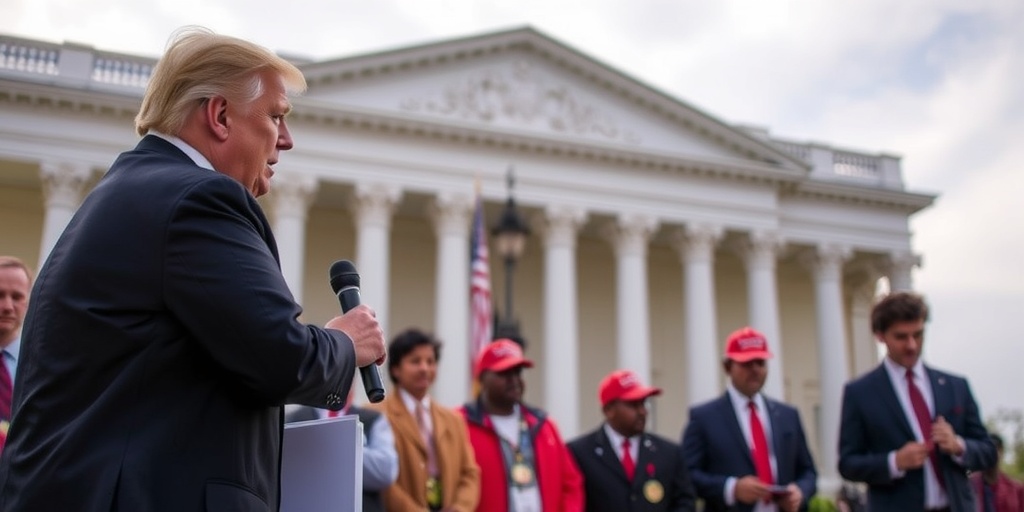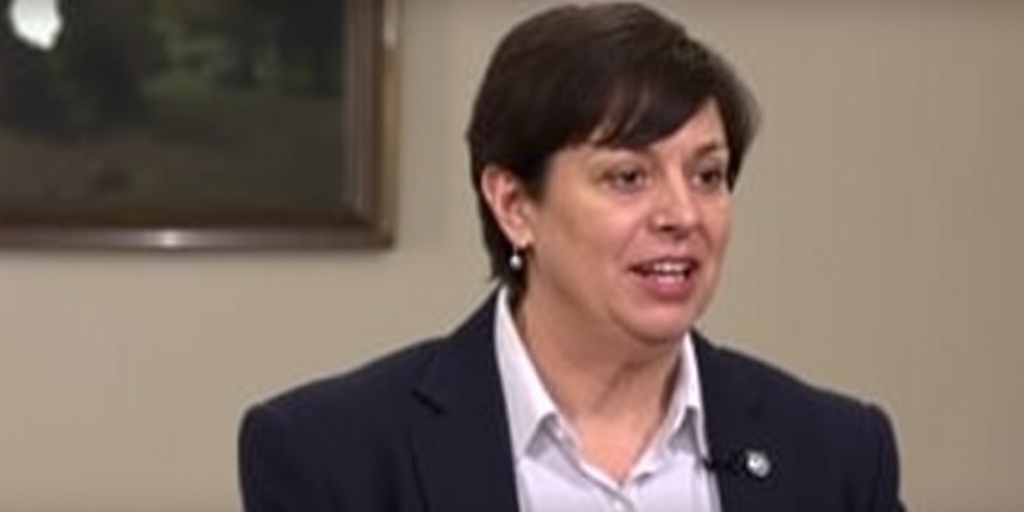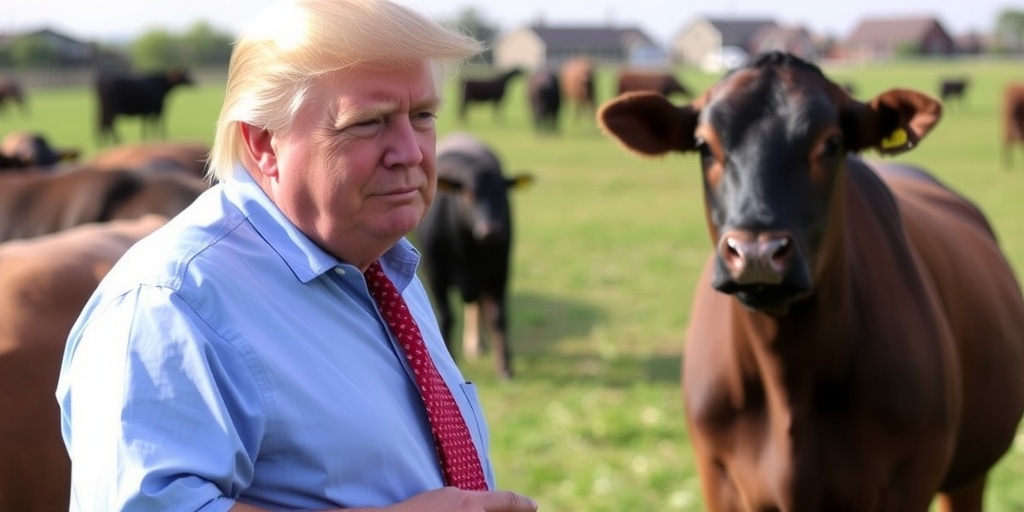Now Reading: Trump’s Immigration Policies Pressure Employers to Find Workforce Solutions
-
01
Trump’s Immigration Policies Pressure Employers to Find Workforce Solutions
Trump’s Immigration Policies Pressure Employers to Find Workforce Solutions

Concerns Rise Over H-2B Visa Delays Amid Labor Shortages
In recent weeks, managers across various sectors, including resorts, plant nurseries, fish processing facilities, and racetracks, have expressed growing anxiety regarding the issuance of H-2B visas. These crucial visas are often sought by seasonal businesses that struggle to find sufficient domestic labor to meet their operational needs—an issue that has become increasingly critical as the summer season approaches.
Typically, the Department of Homeland Security (DHS) announces the release of H-2B visas shortly after the number of applications exceeds the cap allowed for the latter half of the year. This year’s cap was reached on March 5, but announcements were notably absent, leaving many industries restless. In response to these delays, industry lobbyists mobilized, engaging Congress to send letters urging the administration to continue issuing these essential visas and even organizing fundraisers, including one at Mar-a-Lago.
Greg Chiecko, president of the Outdoor Amusement Business Association, emphasized the urgency of the situation, stating, “It needs to be done by April 1; otherwise, we all get backed up.” He noted that although there have been indications that visas will be issued soon, the administration has been slow to act.
Finally, a recent announcement confirmed that the flow of visas would resume, allowing businesses reliant on these workers for summer operations to proceed with their plans. However, this relief comes amid a backdrop of uncertainty regarding President Trump’s broader immigration policies, which include ramped-up deportations and efforts to revoke legal statuses for millions who have entered the country in recent years. These actions are likely to tighten the labor market, prompting employers to argue for expanded legal pathways for foreign workers.
The American Business Immigration Coalition, representing employers who rely on immigrant labor, convened to advocate for more comprehensive immigration reforms that would allow for both the cessation of illegal migration and the admission of workers legally. Their chairman, Bob Worsley, who has faced persistent labor shortages in his modular housing firm in Arizona, stated, “This is kind of like a dam that’s holding back water—eventually, the water will find a way through.” Worsley contends that while border security can be enhanced, the immigration system needs urgent reform to provide legal avenues for workers.
President Trump has expressed a willingness to accept greater numbers of legal immigrants, having frequently utilized short-term employment visas at his resorts, golf clubs, and winery. However, the intentions of his administration remain obscured—particularly given the prominent influence of hardline restrictionists within the White House, including senior adviser Stephen Miller. This faction contends that allowing temporary worker visas fails to adequately protect American laborers.
The Heritage Foundation’s Project 2025, which outlines the administration’s immigration strategy, has suggested downsizing temporary visa programs such as H-2A and H-2B. The report encourages employers to invest in automation rather than relying on guest-worker programs. Nevertheless, advocates like Worsley perceive potential opportunities for reform and expansion of the visa system once the administration feels satisfied with immigration enforcement efforts.
In Congress, discussions surrounding immigration reform have commenced with several key legislative efforts gaining traction. One such bill, backed by the United Farm Workers, aims to provide legal avenues for certain undocumented agricultural workers and enhance flexibility for those holding work visas. Representative Dan Newhouse, a Republican and agricultural business owner, expressed optimism that prior excuses for inaction on immigration no longer hold weight. “I truly think this is the Congress that we can make it happen,” he asserted.
Further, Representative María Salazar of Miami has presented the Dignity Act, which calls for a pathway to legal residency for undocumented workers while simultaneously strengthening border security and reforming visa programs. This comprehensive approach has garnered bipartisan support, and Salazar believes that it could secure majority backing among lawmakers.
Despite previous failures in achieving comprehensive immigration reform, legislative actors are recognizing the necessity of incremental progress. This may begin with protective measures for individuals brought to the U.S. as children, currently shielded from deportation under the Deferred Action for Childhood Arrivals (DACA) program, which enjoys significant support even among Republican voters.
Massey Villarreal, a Texas Republican and former advisor on immigration to President George W. Bush, remarked on the evolving political landscape, suggesting that quick changes could occur if Trump is incentivized to champion significant reforms rather than merely endorsing minor adjustments. “I think there’s going to be a whole revamping of this process,” he noted.
As the administration intensifies efforts to curtail the immigrant workforce through deportations and the revocation of temporary legal statuses, industries dependent on this labor force are poised for a labor crisis that may compel lawmakers to act decisively. With employment in agriculture, construction, manufacturing, and hospitality at stake, the pressure on Washington to address immigration effectively could soon reach critical levels.
While the intentions of the administration remain uncertain, the pressing demand for reform grows clearer, indicating a potential for change in the complex realm of U.S. immigration policy.
Stay Informed With the Latest & Most Important News
Previous Post
Next Post
-
 01New technology breakthrough has everyone talking right now
01New technology breakthrough has everyone talking right now -
 02Unbelievable life hack everyone needs to try today
02Unbelievable life hack everyone needs to try today -
 03Fascinating discovery found buried deep beneath the ocean
03Fascinating discovery found buried deep beneath the ocean -
 04Man invents genius device that solves everyday problems
04Man invents genius device that solves everyday problems -
 05Shocking discovery that changes what we know forever
05Shocking discovery that changes what we know forever -
 06Internet goes wild over celebrity’s unexpected fashion choice
06Internet goes wild over celebrity’s unexpected fashion choice -
 07Rare animal sighting stuns scientists and wildlife lovers
07Rare animal sighting stuns scientists and wildlife lovers





















